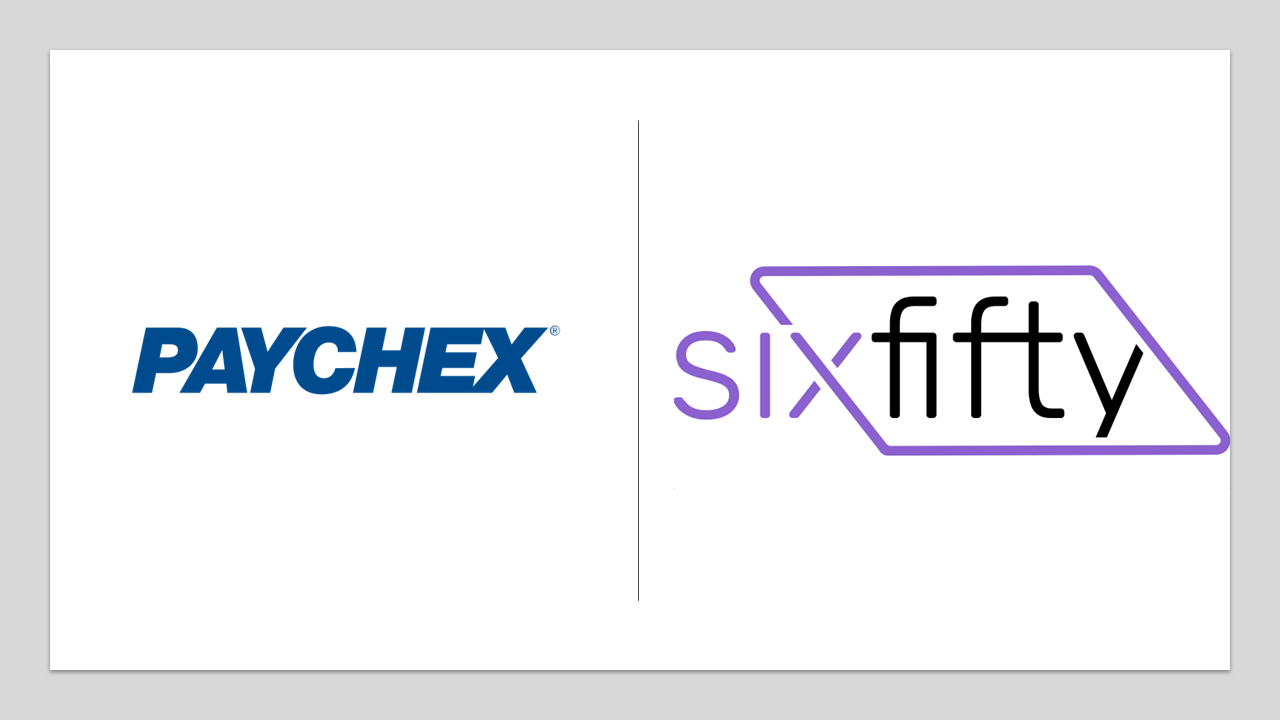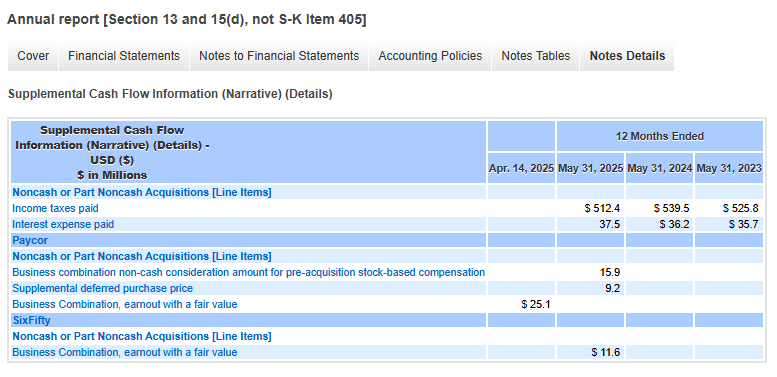Update: Wilson Sonsini Issues Statement on Sale of SixFifty to Paychex.
Although the deal has not been publicly announced by either company, LawSites has learned that the payroll and human resources company PayChex has acquired the legal technology company SixFifty, which in recent years has heavily focused on helping businesses automate employment law compliance and documentation.
SixFifty was owned by the Silicon Valley law firm Wilson Sonsini Goodrich & Rosati as a technology subsidiary, as well as by its CEO Kimball Dean Parker, the Utah lawyer who helped found it, and by other employees of the company.
The acquisition took place in May for an amount said to be between $70-$85 million, according to a source familiar with the deal. It appears that the deal included both cash and equity.
PayChex has made no public announcement about the deal. Although PayChex is a publicly traded company (NASDAQ: PAYX), its recent filings with the U.S. Securities and Exchange Commission make no mention of the deal.
A June 25 year-end report to investors likewise was silent about the acquisition.
Rather, recent PayChex SEC filings and news releases have focused on its recent $4.1 billion acquisition of Paycor, another payroll and talent-management software company.
Similarly, SixFifty’s website makes no mention of its acquisition, and its corporate registration filings in Delaware, where it is incorporated, and in Utah, where it is headquartered, show no change in ownership.
PayChex’s annual 10-K report, which it filed with the SEC on July 11 and which covers the period through May 31, describes the company as “an industry-leading human capital management (‘HCM’) company delivering a full suite of technology and advisory solutions in human resources (‘HR’), employee benefit solutions, insurance, and payroll processing.”
The report says that, as of May 31, 2025, it served approximately 800,000 clients and their employees across the U.S. and parts of Europe.
An attachment to the 10-K listing the company’s subsidiaries also makes no mention of SixFifty.
Partial Noncash Acquisition
The only confirmatory documentation I could find was a form on the Paychex investor site entitled “Supplemental Cash Flow Information.” It showed an entry for May reflecting a non-cash payment of $11.6 million relating to the acquisition of SixFifty Technologies LLC, which is the corporate name of SixFifty.
A lawyer familiar with M&A transactions told me this form showed that there had been an acquisition and that part of the purchase price was paid in equity valued at $11.6 million, rather than in cash.
I have reached out to PayChex for comment but have received no response as of this writing.
Building Automated Legal Tools
I have closely followed SixFifty ever since it was founded. The company was launched in February 2019 as a technology subsidiary of Wilson Sonsini, with a mission to build automated legal tools for individuals, small businesses and emerging companies.
Since its launch, it has been led by cofounder Kimball Dean Parker as president and CEO. Parker is the lawyer who was instrumental in developing the innovative LawX design lab at BYU Law School. Another cofounder, Lincoln Porter, was chief technology officer until leaving in 2021. Corporate records indicate he remained an owner.
Related: LawNext Episode 32: Kimball Parker, Head of Wilson Sonsini’s New Tech Subsidiary SixFifty.
The company’s first product, released in May 2019, was SixFifty Privacy, a software suite to help businesses comply with the California Consumer Privacy Act (CCPA). Developed based on the expertise of Wilson Sonsini’s privacy attorneys, the CCPA tool generated all necessary policies and documents, managed consumer data requests through a portal, facilitated data mapping, and provided employee training – enabling a company to jumpstart its CCPA compliance in minutes.
Following this launch, Parker indicated SixFifty would next turn its attention to access-to-justice projects. In fact, later in 2019, SixFifty partnered with BYU Law’s LawX lab to tackle the asylum application process – providing technical support as law students applied design thinking to streamline asylum forms.
In March 2020, SixFifty expanded its compliance offerings. It launched a GDPR compliance tool to complement its CCPA product, allowing companies to automate the creation of documents and policies needed under the EU’s data protection law. The GDPR tool mirrored the CCPA solution’s approach – modular automation of policies, training, data mapping, cookie consents, and request management – all developed with Wilson Sonsini’s legal guidance.
When COVID-19 hit, SixFifty pivoted quickly to address employers’ urgent needs. In late March 2020, it released a free automated tool for COVID-19 employment policies that enabled businesses to generate essential workplace policies (remote work, sick leave, travel, etc.) tailored to pandemic conditions. Here again, the tool used questionnaires and templates developed with Wilson Sonsini’s employment lawyers.
Just weeks later, in May 2020, SixFifty rolled out a more comprehensive Return-to-Work Toolset to help companies safely bring employees back to the office. This toolset offered a readiness assessment, customizable return-to-work policies, and a daily health screening questionnaire system. Employers could use it to gauge their reopening preparedness and generate workplace-specific COVID safety policies, with all data and employee screenings tracked via the platform.
Further extending its pandemic response, SixFifty adapted two existing access-to-justice apps for pandemic-related housing relief: Hello Landlord, an app originally built to help tenants communicate with landlords, was modified to address COVID-19 issues, and Hello Lender was created to help out-of-work homeowners request mortgage forbearance. Both were offered as free tools to assist the public during the crisis.
By June 2020, SixFifty even introduced a free Return-to-Worship Readiness Assessment to help churches and religious organizations determine if they were prepared to resume in-person services safely.
Toward the end of 2020, SixFifty broadened its scope beyond pandemic issues and pure compliance. In October 2020, it unveiled a diversity, equity and inclusion (DEI) platform to help organizations develop and implement workplace diversity programs. Built with Wilson Sonsini’s employment attorneys and an outside diversity consultant, the platform guided companies through assessing their diversity efforts, crafting an action plan, and auto-generating the necessary policies and HR documents to support the initiative.
In March 2021, SixFifty returned its focus to core employment law compliance, launching a product that automated the generation of every employment policy developed by Wilson Sonsini – over 50 distinct policies – enabling companies to compile complete, state-specific employee handbooks in a matter of minutes.
In September 2021, with China’s new Personal Information Protection Law (PIPL) set to take effect on Nov. 1 of that year, SixFifty launched a PIPL compliance automation tool to help businesses meet this Chinese data privacy mandate. Similar in spirit to its earlier GDPR product, and once again developed in collaboration with Wilson Sonsini lawyers, the PIPL tool guided companies through questions about their operations in China and then generated all required documentation, in both English and Chinese.
By 2022, a new challenge was emerging for businesses: an expanding patchwork of U.S. state privacy laws. In July of that year, SixFifty introduced a 50-state privacy compliance solution to help companies navigate this complexity. The tool allowed a company to generate a single set of customized privacy documents that simultaneously satisfied the requirements of each state’s law.
In late 2024, SixFifty unveiled one of its most ambitious projects to date, leveraging the knowledge and data it had compiled in developing prior products. On Nov. 25, it released the first phase of the Employment Law Informatics Project (ELIP), an effort to “catalog, summarize, and encode the logic of every employment law in the United States.” In the initial phase, SixFifty’s legal team compiled over 4,000 plain-language summaries covering 100+ employment law topics across all 50 states and major local jurisdictions. The ELIP platform enabled users to search and filter this trove of employment law information or query it using a built-in generative AI search tool.
It followed that in December with the launch of SixFifty AI – an AI-driven research tool designed to help multi-state employers get plain-language answers to employment law questions. Built using the ELIP platform, it provided nationwide coverage of issues relating to hiring, leave and EEO policies, wage and hour issues, and employee separations.
Legal Guidance Combined with HR Services
That background – and particularly the recent launches of ELIP and SixFifty AI – helps explain SixFifty’s potential value to PayChex and its customers.
As noted above, PayChex provides a range of services including payroll processing, HR management, time and attendance tracking, employee benefits administration, and full-service HR solutions. It also offers tools for recruiting, onboarding and performance management.
Adding legal guidance to that mix would seem to be a win-win for the company and its customers.
By acquiring SixFifty, PayChex becomes able to offer its customers an even-more integrated approach to HR and payroll, with SixFifty’s legal expertise complementing Paychex’s service offerings.
Among the potential benefits to its customers:
- Access to a comprehensive database of employment laws and policies.
- Tools to build compliant employee handbooks and agreements.
- Features for staying up to date on legal changes and automatically updating relevant documents.
Those features are likely to be of greatest benefit to businesses with multi-state operations or that face complex HR challenges.
Meanwhile, I still hope to hear from Paychex for further details about the acquisition, and will update this story if I do.
 Robert Ambrogi Blog
Robert Ambrogi Blog

